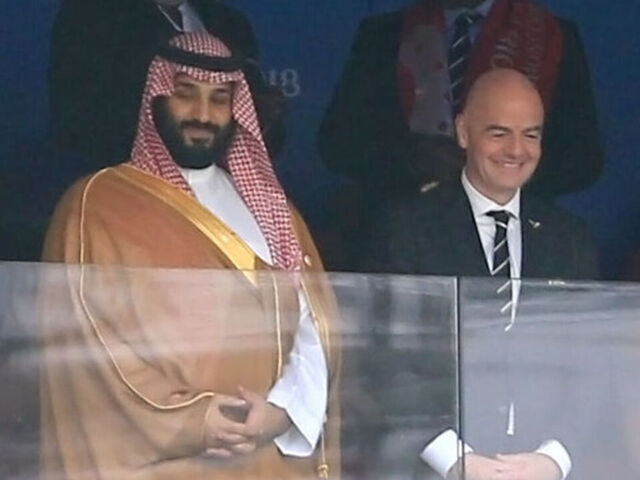
Two months before FIFA is expected to confirm Saudi Arabia as the 2034 World Cup host, the organization faces renewed calls to allow independent monitoring of the kingdom’s human rights obligations related to the event. On Friday, a group of legal and human rights experts, along with Saudi activists abroad, urged FIFA to mandate ongoing reviews and include a potential termination clause in the 2034 hosting contract.
The group, which met in Zurich, aims to have FIFA president Gianni Infantino consider lessons from Qatar’s hosting of the 2022 World Cup, where insufficient legal safeguards and reputational risks were overlooked. Saudi Arabia, a conservative society, faces similar challenges, including large-scale construction projects reliant on migrant workers to build the necessary infrastructure for the tournament.
“There are really no excuses now,” said British lawyer Rodney Dixon. “If it means that they therefore have to come to a different kind of agreement in December, that is what they should do.”
Hosting contracts are expected to be signed after FIFA’s more than 200 member federations meet online on December 11. With Saudi Arabia as the only candidate for the 2034 World Cup, FIFA is likely to approve the bid. Dixon clarified that the group is not seeking a confrontational stance with FIFA, stating, “We are not naive. It is not FIFA’s role to change the world. They are not the UN.”
This push for greater scrutiny follows the UN General Assembly’s decision earlier this week to reject Saudi Arabia’s bid for a seat on the 47-nation Human Rights Council. Concerns over Saudi Arabia’s record on freedom of speech, assembly, labor laws, and male guardianship practices that limit women’s freedoms were highlighted by the advisers.
FIFA has implemented a human rights strategy for future World Cup hosts since Infantino’s election in 2016, especially in response to criticism of Qatar’s treatment of migrant workers. The bid rules for the 2030 and 2034 World Cups focus on “activities in connection with the bidding for and hosting” rather than human rights conditions in broader society.
In May, legal and human rights experts proposed an independent monitoring process for Saudi Arabia’s progress, but Swiss law professor Mark Pieth, an anti-corruption advisor to FIFA from 2011-14, noted that the offer had been ignored. “We are here in Zurich to try again,” Pieth said.
Saudi Arabia’s bid was formally published in July, including a review of its human rights strategy by lawyers it had selected, along with plans for 15 stadium projects. However, Human Rights Watch researcher Joey Shea raised concerns about labor violations affecting the kingdom’s 13 million migrant workers, who make up about 40% of the population. She pointed out the potential for abuses in the massive construction projects required for the World Cup, calling the situation “chilling.”
Rights groups have had limited access to Qatar ahead of the 2022 World Cup, but Shea emphasized that there is “zero access” to Saudi Arabia.
Despite these concerns, Saudi officials have highlighted the kingdom’s ongoing social reforms as part of Crown Prince Mohammed bin Salman’s Vision 2030 initiative. In a video message from Washington D.C., Abdullah Alaoudh from the Middle East Democracy Center argued that “the human rights situation in Saudi Arabia has worsened under Mohamed bin Salman’s leadership.”
FIFA is set to evaluate World Cup bidders, with reports expected in December, which will include assessments of the human rights strategies of Saudi Arabia and the co-hosts of the 2030 World Cup: Spain, Portugal, and Morocco, with single matches to be held in Argentina, Paraguay, and Uruguay. FIFA noted on Friday that all relevant reports, including independent human rights assessments, are available on its website.
FIFA has not held a press conference to address questions regarding the 2034 bid since Saudi Arabia’s candidacy was fast-tracked last year. While a protest during the December 11 vote seems unlikely, any opposition from European voters would also count against Spain and Portugal’s joint bid for the 2030 tournament. There is a possibility the 2030 and 2034 World Cups will be awarded in a single vote without an itemized breakdown.
“If FIFA is desperate to give Saudi Arabia the World Cup,” Pieth said, “the least would be to see to it that the minimum of these (human rights) requirements is actually upheld.”
